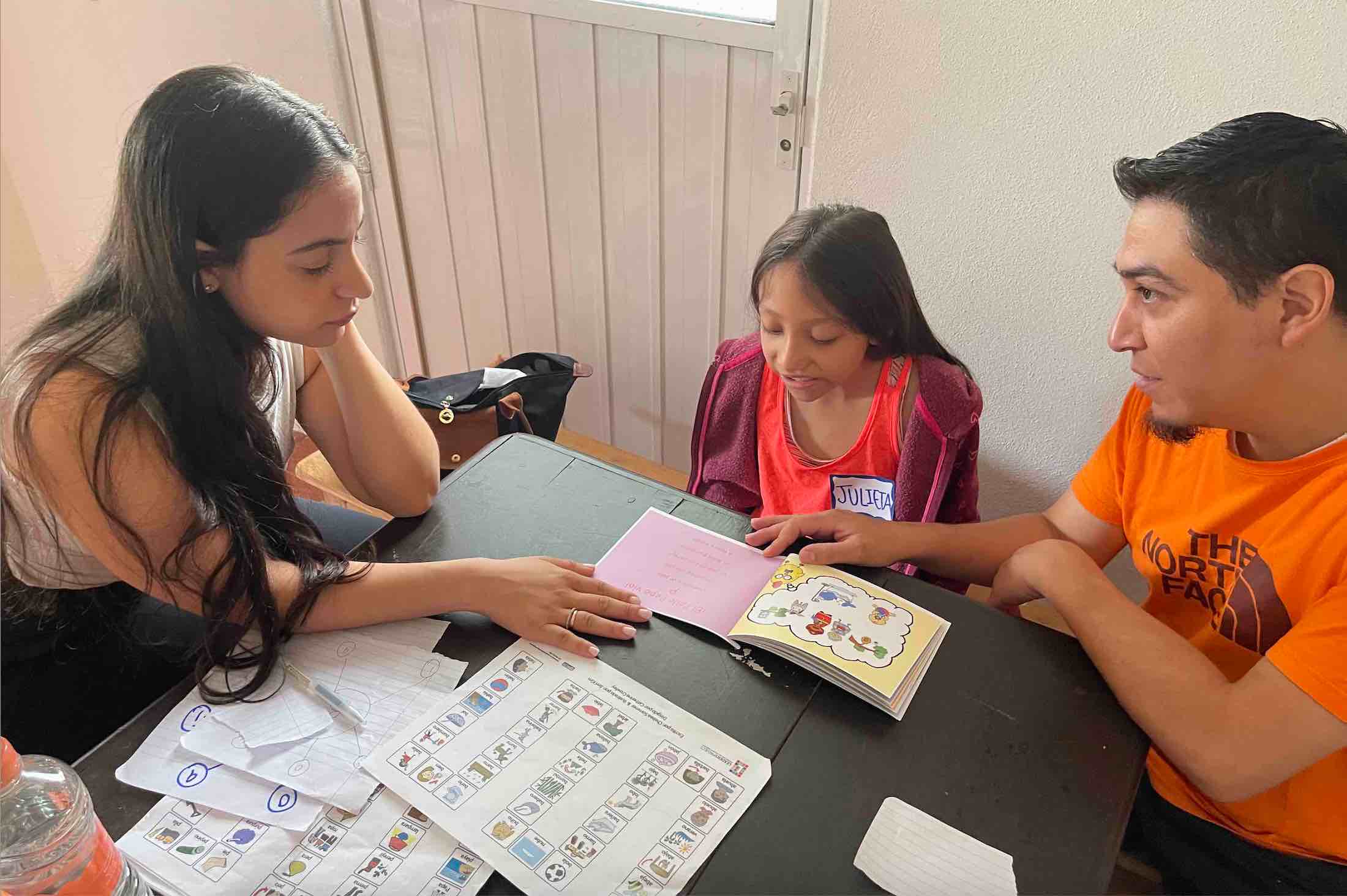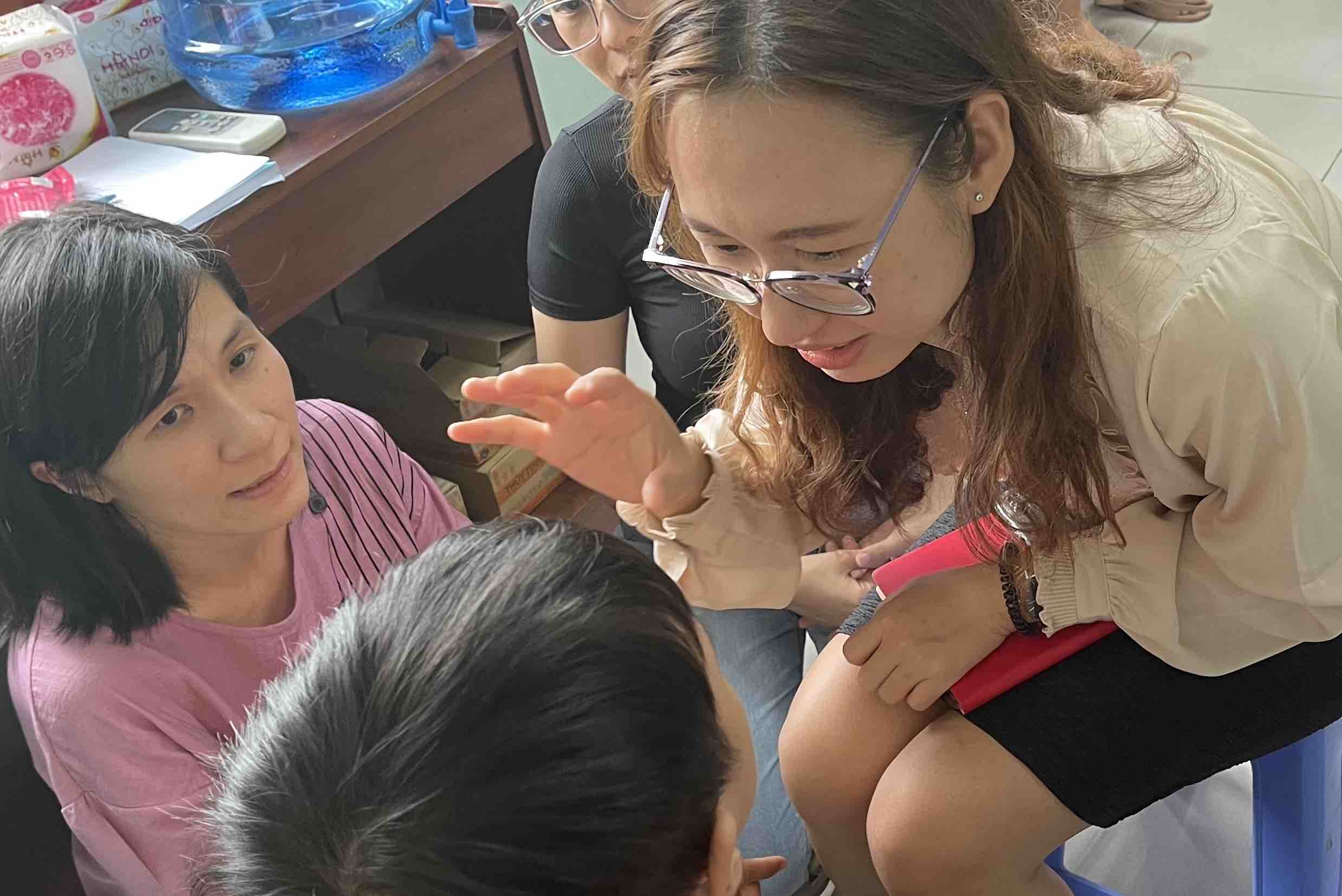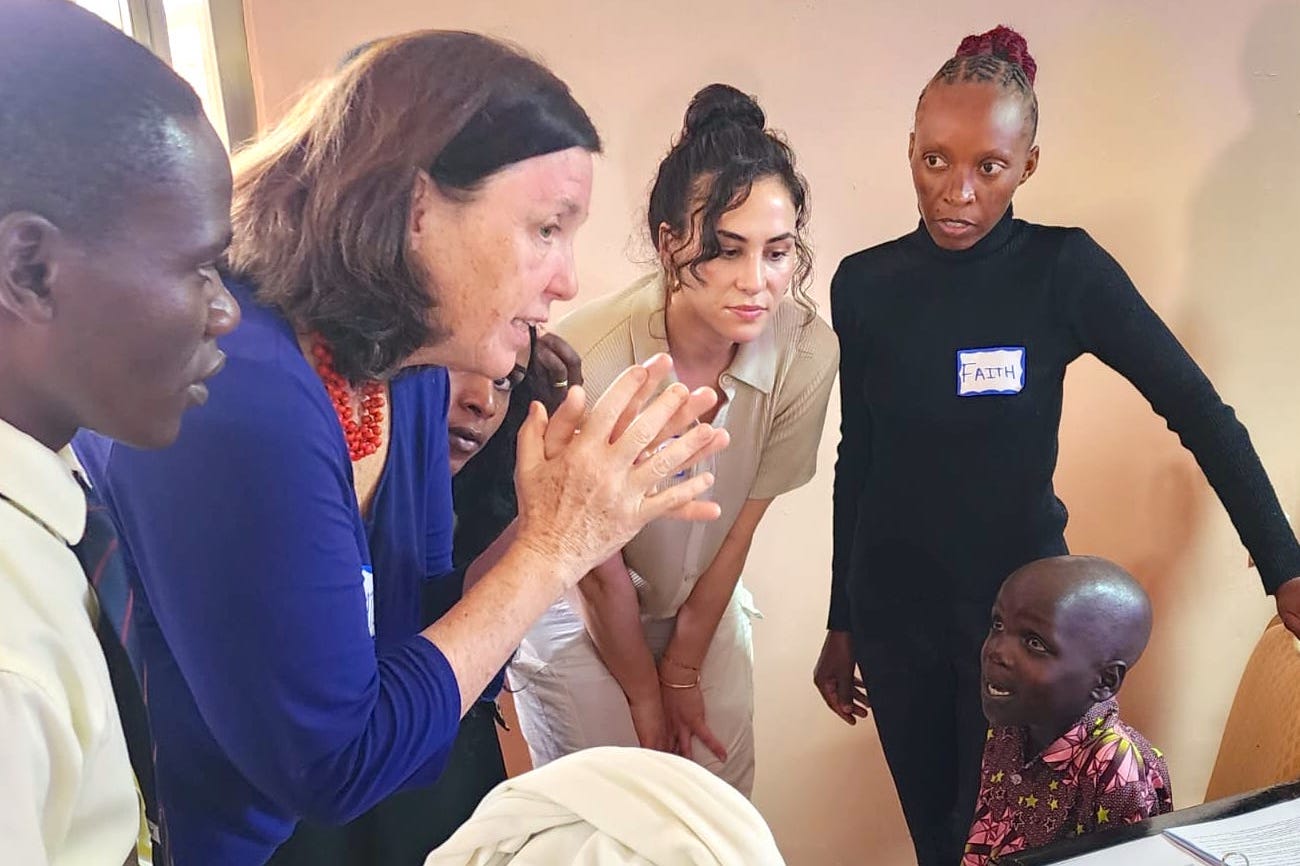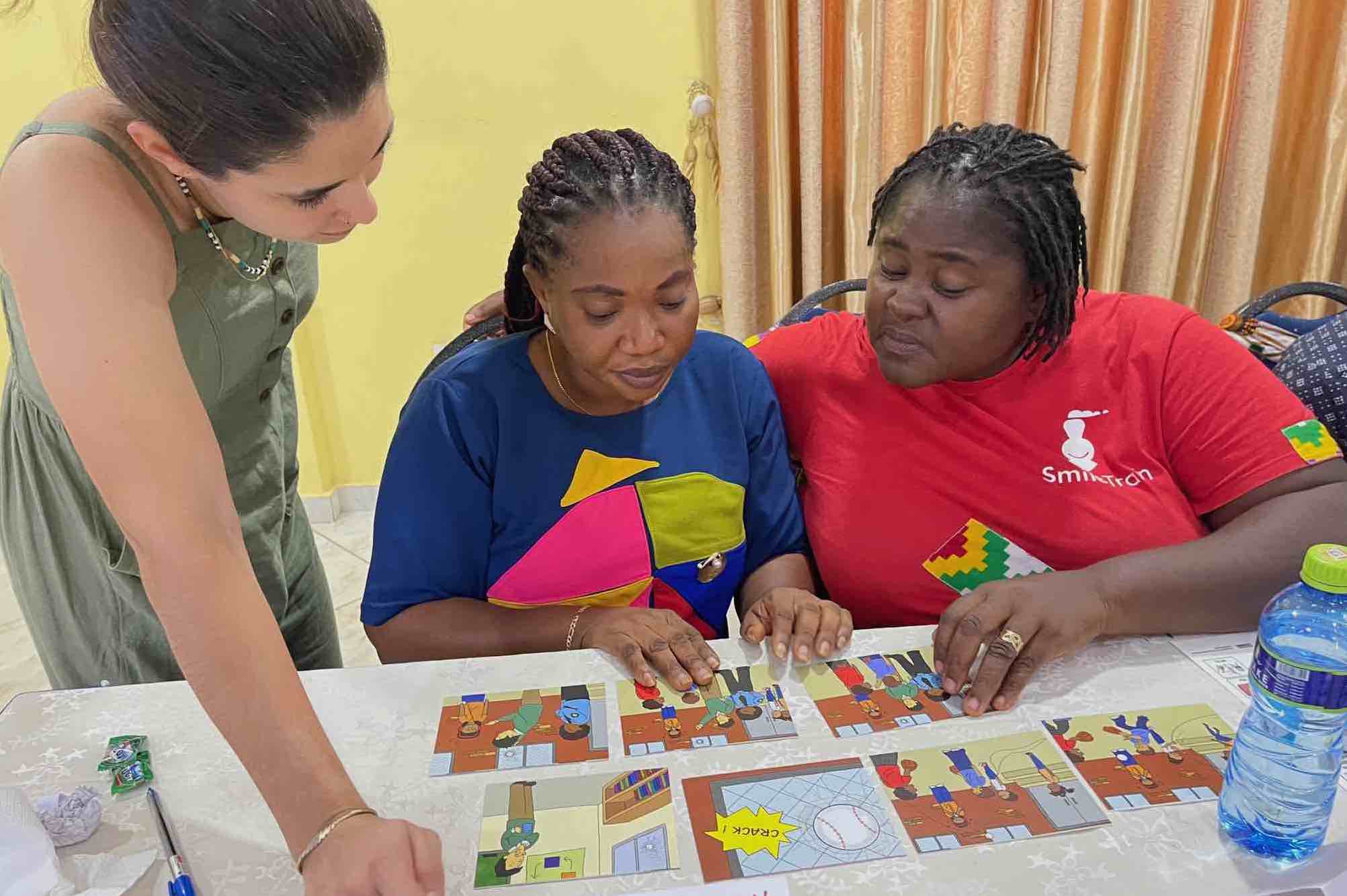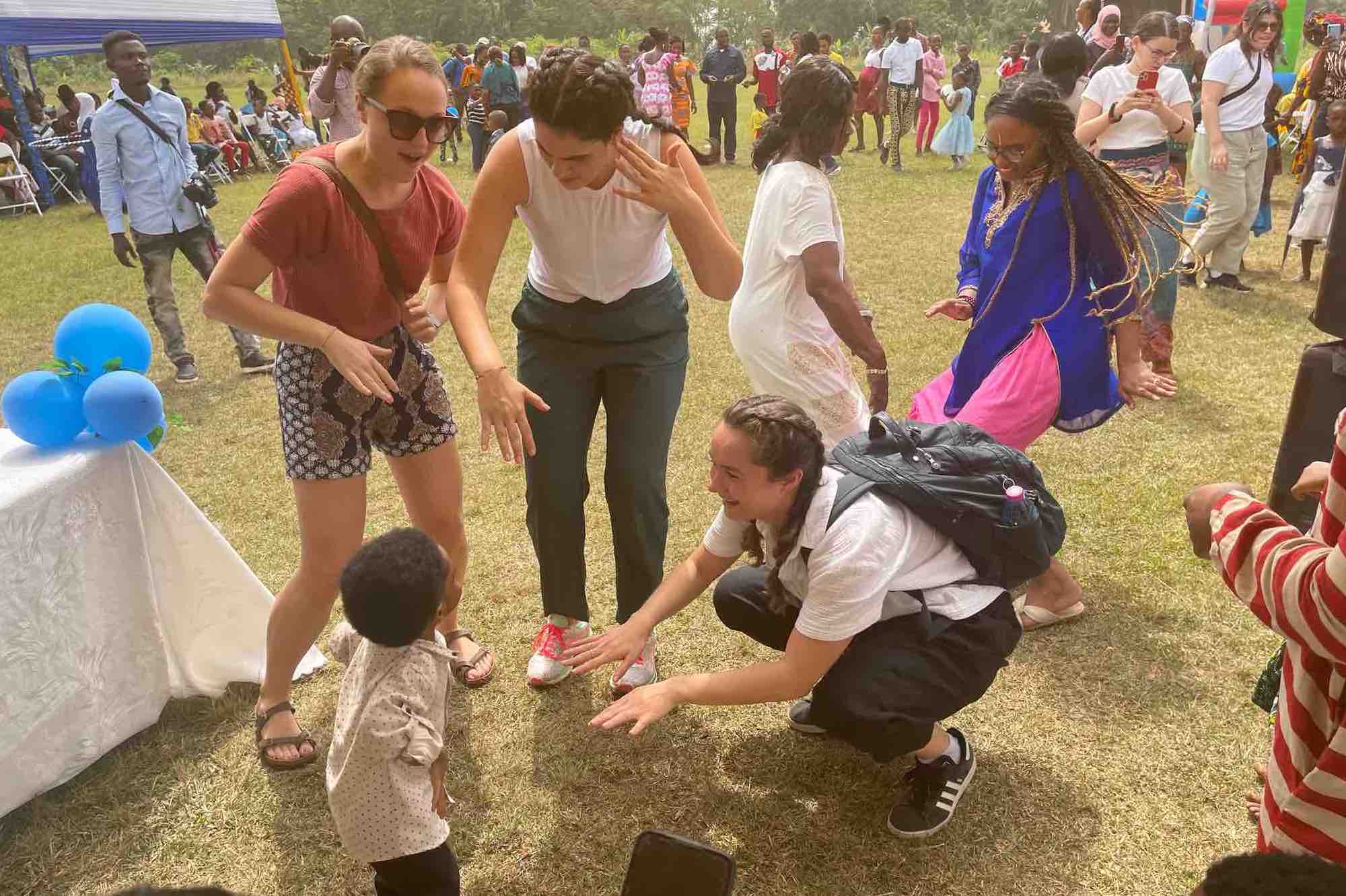When Cesar, an animated nine-year-old boy in Neiva, Colombia, was able to pronounce a word and be understood, he beamed as his speech therapist applauded him. Though Cesar had his cleft palate treated at 12 months old, years passed before he received speech therapy that would teach him how to produce consonant sounds that require the complete closure of the palate. After five days of intensive therapy Cesar’s speech improved by leaps and bounds. His significant progress opened doors to a future that may have been denied to him as many children with cleft palates are abandoned by their parents and excluded from schooling.
Cleft palate speech formed a roadblock for Cesar, and thousands of other children around the world, because when children are born with a cleft palate, they cannot replicate the sounds their parents make. Even after the cleft palate is surgically treated, the child’s maladaptive speech habits continue. That’s where speech therapy comes in. By working with a speech therapist the child can unlearn their old habits and produce sounds correctly, improving their speech.
TC’s own Cate Crowley (Professor of Practice, Communication Sciences and Disorders) describes the relationship between surgery and speech therapy as such: the surgeon gives the child a guitar (a new palate), but the speech therapist shows the child how to play that guitar (producing the correct speech sounds).
Throughout her career, Crowley has provided in-person trainings for speech therapists in Asia, Africa, and Latin America. According to Smile Train, the world’s largest cleft-focused organization and her partner in these trainings, Crowley’s work has facilitated therapy for over 15,000 children worldwide. As she describes it, “speech therapy changes their lives, the surgery closes the gap in the palate…but if they can't speak, can't be understood, they'll get kicked out of school or they'll get bullied or even caned by their teachers for poor speech…it makes an enormous difference.”
Crowley recently traveled to Madagascar, Ghana, Mexico, Uganda and Vietnam with TC students. By working closely with Smile Train, who partners with local medical professionals in more than 75 countries worldwide, Crowley and other therapists provide life-changing therapy and training to families and local medical professionals. Then, when Crowley is needed elsewhere, Smile Train’s local practitioner partners can continue to work with children with treated cleft palates and their families directly, with ongoing support from Smile Train, and also Crowley, as needed.

(Photo: Cate Crowley)
Building Capacity Is the Driving Force for Crowley
Providing patients with long term, lasting support through comprehensive care is a key priority for both Crowley and her partners. “We’re always figuring out ways to be the most sustainable so children can receive quality services,” says Crowley. “I value my relationship with Smile Train because that approach is to build local capacity–it is not a ‘mission-based’ approach to international work and as such is more sustainable and impactful.”
The support tools that parents are given is a huge component of this sustainable approach. As explained by Mical Gomez, a TC student who joined Crowley on a therapy trip to Oaxaca in 2023, the majority of the work is being done at home. “Most of [my patient’s] progress is due to the fact that we coached his mother…We would practice for three hours in our session. At home, they were practicing for four or five, six [hours],” says Gomez. By increasing access to support materials, parents and children have the agency to make progress without waiting for care to come to them.
In addition to providing speech therapy for children and coaching for parents, Crowley’s team expands on the strengths and existing capacities of the countries they work in. By building capacity, Crowley is able to focus on skills that address cleft palate speech errors instead of covering the basics. In the eight years since her first East African training, the number of speech-language therapists in Uganda went from less than a handful to over 80 graduates from a dedicated program at Makerere University.
In Ghana, a destination Crowley has been working in since 2008, there used to be just three speech therapists in the entire country and now there’s a Speech and Language Therapy masters program at the University of Ghana with a cleft palate class as part of the curriculum. “They don’t need me anymore! That’s what we do,” adds Crowley with a smile.
A Philanthropic Gift Expands Access for TC Students
With the help of a generous gift from TC alumna Maureen Gallagher Topper (M.S. ’79, Speech-Language Pathology), Crowley was able to expand her reach even further. “As a result, these TC students have been able to come on these trips and have phenomenal experiences,” says Crowley. Thanks to Topper’s support, this year Crowley has brought over 40 students on trips to destinations like Ghana, Mexico, Uganda, Madagascar, and Vietnam.
The gift from Topper also facilitated development of additional resources for families and professionals. Crowley has spent over a decade developing the Leaders Project, a website that offers free language assessment and cleft palate speech therapy materials in around 40 different languages. While the site has long had a robust collection of materials, Topper’s gift helped with the development of materials in seven East African languages and supported creation of illustrations on speech therapy games.
Crowley explains that without the help of the gift, “I couldn’t bring my students. It’s incredibly rich for them, incredibly helpful for me, but I also wouldn’t be able to produce the kind of materials that I can produce by having that.”
The Impact of Training Trips on TC Students
While the main focuses of international therapy trips are the children and local medical professionals, attending these trips gives students deep skills that will support them in their careers. As one of the few institutions offering a cleft palate speech and feeding program, TC is already unique and students who participate in these trips gain a special level of expertise. And indeed, TC graduates are becoming young leaders in the field. Several have graduated and gone on to join cleft palate teams at leading hospitals nationwide, including those with highly-competitive clinical fellowships for recent grads.
For Sydney Gayner, a student in the Communication Sciences and Disorders program, her experience on a trip to Uganda solidified her desire to pursue a career in Cleft Palate Speech Therapy and was more impactful than she could have imagined. “Just seeing how liberating, how motivational that was to not only the children but their family, it was truly one of the most incredible experiences,” says Gayner. She also gained perspective not only on the impact of speech therapy but also in the ways that medical professionals operate outside of the U.S. “Knowing that this information really empowered [local professionals] and gave them that tool base to work from was just so beautiful,” says Gayner.
Gomez, mentioned earlier, came to TC in large part because of Crowley’s work with bilingual speech pathology and because of the international work she does. Now, amid her own journey, the impact of this international work remains profound.
“It made me aware of how important education is and educating other professionals,” Gomez says, noting that cross-professional education can happen any and everywhere, and that the trips are about collaboration with families and local professionals. “We're there to coach and teach and give them the power and the tools…to be able to continue their own journey and continue improving on their own…We’re really here to facilitate that growth and learning.”

